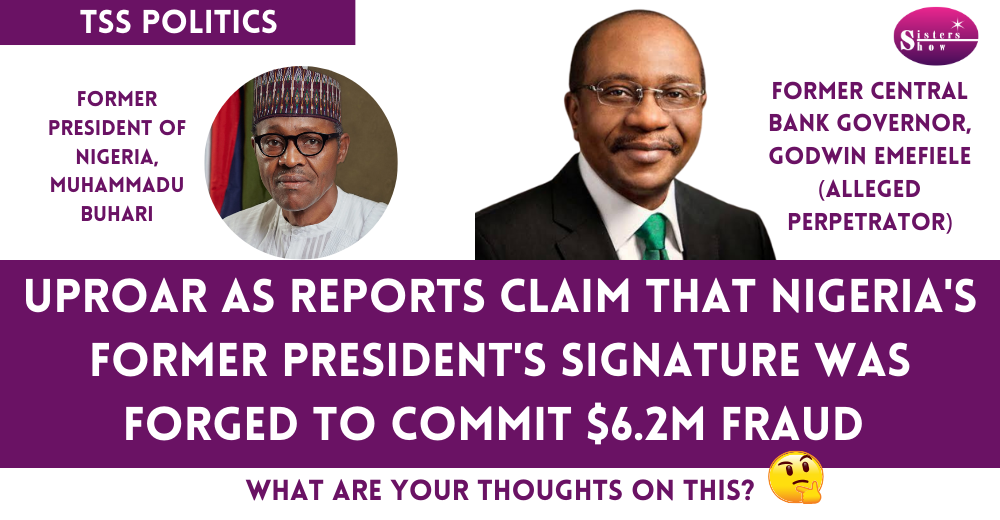
In a shocking turn of events, reports have emerged alleging that Nigeria’s former central bank governor, Godwin Emefiele, forged the signature of former President Muhammadu Buhari to commit a staggering $6.2 million fraud. The revelation has sparked widespread uproar and raised serious concerns about the integrity of Nigeria’s financial institutions.
The controversy came to light during the ongoing trial of Emefiele for fraudulent activities and embezzlement during his tenure as the central bank governor. A witness came forward with damning evidence, revealing that Emefiele approved the payment of $6.23 million for ‘International Election Observers’ to be received in cash. However, it was later discovered that the approval was based on a forged document and did not have the authorization of the former president’s office.
This revelation has sent shockwaves across Nigeria, raising questions about the extent of corruption within the country’s financial system. The alleged involvement of such high-profile figures in fraudulent activities has further eroded public trust in Nigeria’s institutions and government officials.
In response to these damning allegations, the federal government of Nigeria has taken swift action. It has requested Interpol to place three additional individuals on their watchlist for their alleged involvement in conspiring with Emefiele to forge the former president’s signature. This underscores the seriousness of the situation and the determination of authorities to hold those responsible accountable for their actions.
The implications of this scandal are far-reaching and could have significant ramifications for Nigeria’s reputation on the global stage. It highlights the urgent need for greater transparency and accountability in the country’s financial sector, as well as the importance of robust oversight mechanisms to prevent such incidents from occurring in the future.
As investigations into this matter continue, Nigerians are watching closely, hoping for swift and decisive action to root out corruption and restore integrity to their nation’s institutions. Only through transparency, accountability, and the rule of law can Nigeria overcome the scourge of corruption and fulfill its potential as a beacon of democracy and prosperity in Africa.




